Low Carb Sourdough Bread and Its 10 Mental Health Benefits

Sourdough low carb bread is more than just a tasty treat—it’s a powerful tool for enhancing your mental health and providing emotional comfort. Whether you’re a seasoned baker or new to the world of sourdough, the process of baking this tangy, low-carb bread offers incredible therapeutic benefits. There’s something about the ritual of sourdough baking—the care, the patience, and the hands-on process—that can lift your spirits, reduce stress, and help you feel more grounded.
1. Sourdough Low Carb Bread as a Mindful Meditation

Kneading Dough and Focusing the Mind
There’s something incredibly calming about the repetitive motions of kneading sourdough dough. In the baking of low carb sourdough, we knead the dough just before bulk fermentation. The rhythm of pressing, folding, and turning the dough creates a soothing, almost meditative state. When you bake sourdough low carb bread, you’re not just making bread—you’re practicing mindfulness.
The act of kneading engages your hands, mind, and senses, helping you focus only on the task at hand. This mindfulness has been shown to reduce stress, improve mental clarity, and promote emotional calm. Just as meditation helps clear your mind, the act of kneading offers a similar benefit, allowing you to disconnect from everyday worries and stay in the present moment. By concentrating on the dough’s texture and transformation, your mind becomes quieter and more at peace.
2. Emotional Uplift from Baking Sourdough Low Carb Bread

How Sourdough Baking Elevates Mood and Reduces Anxiety
Baking sourdough, especially low-carb sourdough bread, is a therapeutic process that goes beyond just making food. It’s a sensory experience. Kneading and mixing dough trigger the release of endorphins, dopamine, and serotonin—chemicals that are linked to happiness and calm. These neurotransmitters play a significant role in boosting mood and reducing anxiety. When you’re fully engaged in baking, you experience a surge of positive emotions.
Sourdough as a Mind-Body Ritual
Sourdough baking is more than just cooking—it’s a journey that nurtures your mind and body. The sensory experience triggers the release of happy chemicals like dopamine and serotonin, helping reduce anxiety and boost mood. The act of kneading, waiting, and smelling the dough encourages mindfulness, providing a natural way to unwind. Whether it’s the satisfaction of a well-baked loaf or the calming rhythm of the process, sourdough baking is a wonderful way to elevate your mood, foster well-being, and find a sense of inner peace.
1. Kneading and Mixing: A Meditative Process
Kneading dough requires focus, which helps shift your attention away from daily worries. It’s a simple act, yet incredibly soothing. The repetitive motions stimulate the release of endorphins, which reduce stress and increase feelings of joy. It’s almost like a mini workout for the mind, providing mental clarity and calmness. Over time, these small moments of mindfulness can have a powerful effect on your mood.
2. The Role of Dopamine: Instant Gratification
Watching your dough rise and taking care of it through each step brings satisfaction. Dopamine, the brain’s reward chemical, is released with each milestone, whether it’s the dough expanding or the bread finally baking. This gradual sense of progress boosts feelings of accomplishment and makes the process more enjoyable. Every moment of success, no matter how small, rewards you with a feeling of pleasure and pride.
3. Serotonin: The Feel-Good Hormone
Baking sourdough activates serotonin production, which promotes happiness and relaxation. The smell of rising dough, the sound of it cracking in the oven, and the sight of a golden loaf all trigger serotonin. This neurotransmitter helps regulate mood, reducing feelings of anxiety and promoting a general sense of well-being. The soothing ritual of sourdough baking provides a steady source of comfort, making it easier to cope with stress.
4. The Power of Aroma: A Natural Stress Reliever
The smell of fresh bread baking is one of the most comforting scents. Our brains are wired to associate aromas with emotions. The smell of sourdough activates the limbic system, which governs feelings and memory. This olfactory stimulation helps reduce stress and anxiety, offering a sense of security. The aroma fills your space with warmth, creating a sense of peace that lasts long after the bread is out of the oven.
5. Tradition and Craftsmanship: A Connection to the Past
Baking sourdough connects you to an age-old tradition, offering a sense of continuity and comfort. The slow, deliberate process brings a feeling of groundedness, especially in a fast-paced world. This connection to something timeless can help alleviate anxiety and create a sense of belonging. When you bake, you’re not only following a recipe—you’re participating in a tradition that’s been passed down for generations.
6. Mindfulness: Finding Peace in the Process
Sourdough baking is an exercise in mindfulness. Every step requires focus, from folding the dough to watching it rise. This attention to detail pulls you into the present moment and calms your mind. Mindfulness has been shown to reduce stress by helping you focus less on worries and more on the task at hand. Baking sourdough naturally brings you back to the present, offering mental clarity and peace.
7. The Final Reward: Enjoying the Fruits of Your Labor
After the bread is baked, there’s the final reward: enjoying a loaf you made yourself. This creates a sense of accomplishment, boosting your confidence. The act of sitting down to eat something you’ve crafted offers a moment of gratitude and reflection. It’s not just about food—it’s about taking pride in the process and feeling fulfilled. This simple pleasure can lift your spirits and help you feel more centered.
3. A Sense of Accomplishment with Every Loaf

The Emotional Benefits of Creating Sourdough Bread
Baking sourdough, especially low-carb sourdough bread, brings a unique sense of pride. When you pull a golden loaf from the oven, you feel a deep satisfaction. Unlike store-bought bread, making your own allows you to witness the transformation of simple ingredients—water, flour, and starter—into something nourishing and beautiful. This hands-on process can provide a lasting emotional reward.
Sourdough as an Emotional Journey
Baking sourdough is more than just making bread—it’s an emotional experience that nurtures your sense of pride, creativity, and accomplishment. Whether you’re a seasoned baker or just starting, the process provides a deep sense of fulfillment and a boost to your self-esteem. Each loaf is a celebration of your dedication to both your craft and yourself, making sourdough baking a powerful way to nourish both your body and mind.
1. Building Self-Esteem through Creation
Creating something from scratch is a powerful way to boost your self-esteem. With each loaf you bake, you’re reminded of your own capability. From mixing the dough to shaping it, every step involves skill and attention. Seeing the finished product gives you a tangible result to be proud of. This feeling of accomplishment reinforces your belief in your own abilities and can enhance your overall confidence.
2. The Power of Accomplishment and Fulfillment
Baking sourdough provides a strong sense of fulfillment. As you witness your dough rise and transform, you’re creating more than just bread—you’re nurturing your mind and body. The act of working through each step is an accomplishment in itself. Completion of the process brings emotional satisfaction, providing a moment of reflection on your dedication and hard work. Whether you’re a novice or experienced baker, the result is always something to be proud of.
3. Creativity and Self-Expression
Sourdough baking is a creative outlet that allows you to express yourself. You can experiment with different flours, hydration levels, and techniques to create a loaf that’s uniquely yours. This creative freedom fosters a sense of empowerment, as you shape your bread just the way you like it. The process encourages you to trust your instincts, boosting self-confidence and promoting a positive sense of self.
4. Nurturing and Self-Care
Baking is also an act of self-care. As you invest time in making your own bread, you’re prioritizing your well-being. You’re choosing to nurture yourself and create something healthy for your body. The act of baking fosters a sense of love and gratitude, both for yourself and for the food you’re creating. Every loaf serves as a reminder of your ability to care for your physical and emotional health.
5. A Tangible Reminder of Your Effort
Each loaf of sourdough bread becomes a visual reminder of your effort and creativity. It’s a symbol of patience, dedication, and the rewards of working with your hands. When you slice into a fresh loaf, it’s not just the taste that matters—it’s the emotional connection to your process. It’s a reminder of your own resilience and ability to create something lasting and meaningful.
4. The Emotional Resilience Found in Sourdough Baking

Finding Stability in the Ritual of Sourdough Baking
Baking sourdough, especially low-carb sourdough bread, offers a calming, rhythmic process that provides a sense of stability. From mixing the ingredients to the slow fermentation, every step has a comforting, predictable flow. In a world that feels chaotic, sourdough baking gives you something to focus on. It’s a ritual that helps you feel grounded, offering control when everything else feels uncertain.
Sourdough as a Source of Stability
The ritual of sourdough baking provides more than just a physical result; it offers emotional stability. In a world of uncertainty, the rhythmic process of mixing, waiting, and baking helps you find focus and calm. Sourdough reminds you that, with patience and care, both bread and people can rise, grow, and become stronger. Each loaf you bake offers a sense of accomplishment and a grounded connection to a steady, nurturing process that helps you stay centered.
1. The Rhythmic Comfort of Sourdough Baking
The process of making sourdough bread is inherently predictable. Each step, from kneading to shaping, follows a familiar rhythm. This rhythmic pattern creates a sense of order amidst life’s unpredictability. As you care for your dough, you can rely on its steady progress, providing a break from the chaos of daily life. This simple act of following a process helps you regain focus and clarity, allowing you to feel more in control.
2. A Sense of Control in Uncertain Times
When life feels out of control, the ritual of sourdough baking offers a constant you can depend on. Each stage of the process is reliable: the dough rises, ferments, and bakes into something nourishing. In times of uncertainty, this consistency provides emotional comfort. The act of nurturing the dough, day after day, is a gentle reminder that, like the bread, we too can grow and adapt over time.
3. Patience and Emotional Resilience
Baking sourdough is a lesson in patience. The dough needs time to rise, to rest, and to develop. Just like bread, we often need time to grow, heal, and become stronger. The long fermentation process is a metaphor for emotional resilience—it requires care, attention, and the ability to trust in the process. As you wait for the dough to transform, you’re reminded that growth takes time and that with patience, you too can find your strength.
4. Nurturing and Self-Care through Ritual
Sourdough baking is also a form of self-care. The time you spend nurturing your dough gives you a moment to focus on something outside of yourself, offering a break from mental overload. This hands-on process, which requires gentle care and attention, creates a sense of balance. It’s a simple act, but one that can have a profound impact on your mental state. The ritual becomes a form of emotional nourishment, helping you feel more grounded and at peace.
5. A Grounding Process for the Mind
As the dough rises, so does your sense of calm. The steady, gradual transformation from raw ingredients to a finished loaf mirrors the process of emotional growth. With each stage of sourdough baking, you are reminded that life’s challenges—just like the dough—can be worked through with care and patience. This grounding process can help you reconnect with a deeper sense of purpose, offering emotional clarity when things feel chaotic.
5. Creative Expression Through Sourdough Baking

How Sourdough Baking Sparks Creativity
Baking sourdough, especially low-carb bread, is a deeply creative process. From choosing ingredients to adjusting hydration levels, each step allows you to express your personal style. Whether it’s adding herbs, spices, or experimenting with shapes, sourdough gives you endless ways to get creative. Every loaf becomes an opportunity to put your unique touch on something truly satisfying.
Sourdough as a Creative Outlet
Sourdough baking is a wonderful way to spark creativity and express yourself in the kitchen. From experimenting with ingredients to playing with shapes and designs, the process is filled with possibilities. It’s a creative outlet that allows you to explore your artistic side while also nurturing your emotional well-being. Whether you follow a recipe or try something new, each loaf is a reflection of your creativity, providing both personal fulfillment and a deep sense of joy.
1. Creative Freedom in Every Loaf
Sourdough baking offers freedom to experiment. You can adjust the dough’s hydration, mix in different flavors, or try new shapes. The versatility of sourdough means there’s always room for innovation. This creative process lets you add a personal twist to each loaf, whether you’re aiming for a simple rustic look or an elaborate design. The result is something you made, uniquely your own.
2. A Therapeutic Outlet for Self-Expression
Sourdough baking isn’t just about making bread; it’s a form of self-expression. When you experiment in the kitchen, you engage in a creative act that releases built-up emotions and stress. The freedom to try new things in a non-judgmental space is both relaxing and therapeutic. Creative activities like baking have been shown to improve mental health, helping you feel more centered and at ease.
3. Endless Opportunities for Experimentation
One of the joys of sourdough is that there are no hard-and-fast rules—just possibilities. You can follow a classic recipe or break the mold entirely. Try adding new ingredients, changing the shape of your loaf, or altering baking techniques. This level of experimentation fosters a sense of playfulness and encourages you to think outside the box. The ability to continuously innovate keeps the baking process fresh and exciting.
4. Creativity for Mental Health
Creativity is a powerful tool for emotional well-being. Baking sourdough allows you to express yourself through a tangible, enjoyable process. As you adjust the dough and watch it transform, you release tension and focus on the present moment. This mindfulness helps reduce anxiety and enhances your overall mood. By embracing creativity, you can find peace in the process, making each loaf a form of emotional release.
5. Transforming Bread into Art
Each loaf of sourdough becomes more than just food—it’s a form of artistic expression. Whether you’re scoring the dough with intricate designs or experimenting with flavors, you’re creating a visual and edible masterpiece. The act of shaping and scoring your dough allows you to channel your creative energy into something beautiful and delicious. The process itself can be a deeply fulfilling experience, improving your sense of accomplishment and emotional well-being.
6. The Comfort of Sourdough Bread

Emotional Healing through the Scent and Taste of Sourdough
The scent of freshly baked sourdough, especially low-carb bread, is more than just a delicious aroma—it’s an emotional comfort. The warm, tangy scent has the ability to evoke feelings of security, nostalgia, and a sense of home. For many, sourdough carries an emotional weight that goes beyond the physical act of baking; it’s a reminder of simpler, peaceful times.
Sourdough as Emotional Comfort
The scent and taste of sourdough bread offer much more than physical sustenance; they provide emotional healing. The warm, tangy aroma brings feelings of comfort, nostalgia, and peace, while the act of enjoying a freshly baked loaf grounds you in the present moment. Sourdough, with its nourishing scent and flavor, provides a source of solace during times of stress and a reminder of life’s simple joys. In the comfort of each slice, you can find calm, healing, and emotional satisfaction.
1. Nostalgia and Warmth in Every Slice
The smell of freshly baked sourdough evokes powerful memories. It’s the scent of something lovingly made, filling the space with a sense of warmth and safety. For many, this aroma brings feelings of nostalgia—the comforting reminder of home, family, or past experiences. It’s the kind of smell that makes you feel rooted in the present while connecting you to moments from the past. This emotional connection helps ease stress and brings comfort in uncertain times.
2. The Emotional Power of Scent
Scent has a profound effect on our emotions, and the smell of sourdough activates the limbic system, the part of the brain that governs memory and emotion. The tangy, earthy aroma of sourdough is not only appetizing but also deeply soothing. It’s an aroma that feels like a warm embrace, inviting you to relax and unwind. The scent of sourdough is like an emotional reset button, helping to reduce anxiety and bring peace.
3. Savoring the Present Moment with Every Bite
Eating a freshly baked loaf of sourdough is an experience that engages all your senses. The taste of tangy bread, combined with its warm, comforting texture, has an immediate emotional impact. The act of slicing and savoring the bread pulls you into the present moment, offering a welcome break from the chaos of everyday life. It’s a simple yet profound way to ground yourself, offering a sense of calm and satisfaction.
4. Comforting Through Tough Times
In times of stress or difficulty, the act of enjoying a slice of homemade sourdough can be deeply healing. It’s a small, comforting ritual that helps create a sense of normalcy and peace. The familiar scent and taste of sourdough provide emotional relief, helping to lift your spirits during challenging moments. This grounding experience offers a moment of solace, reminding you that even in tough times, you have the ability to nurture yourself.
5. The Healing Power of Homemade Bread
Making and eating sourdough bread is more than just about nourishment—it’s about emotional healing. The act of baking itself can be therapeutic, and when paired with the powerful comfort of its scent and flavor, it becomes a source of emotional renewal. Every bite of homemade bread serves as a reminder of your own creativity and self-care, offering a profound sense of well-being.
7. Focus and Clarity Through Sourdough Low Carb Bread Baking
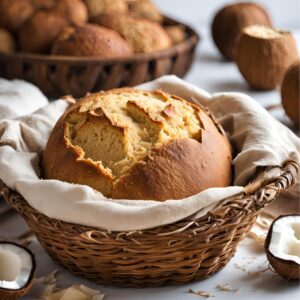
How Sourdough Baking Helps You Stay Present
Baking sourdough, especially low-carb bread, requires focus and patience. From feeding your starter to watching the dough rise, each step demands your full attention. This focus brings a sense of clarity, helping you block out stress and negative thoughts. By fully engaging with the bread-making process, you create space for mindfulness and emotional reset.
Sourdough as a Tool for Mindfulness
Sourdough baking is more than just a culinary skill—it’s a tool for staying present. By focusing on the process, you give yourself a mental break from stress and negative thoughts. Each step, from feeding the starter to shaping the dough, invites mindfulness, helping you reconnect with the moment. Sourdough baking offers a simple yet effective way to quiet the mind, promote clarity, and reset your emotional state, allowing you to stay centered and grounded.
1. Focused Attention on Every Step
Sourdough baking demands presence. From the moment you mix the ingredients to when you shape the dough, every stage requires focus. This helps you step away from distractions and immerse yourself in the task at hand. The process becomes a meditative practice, allowing you to leave behind worries and embrace the calming rhythm of baking. It’s a simple, satisfying way to center your thoughts and stay in the moment.
2. Blocking Out Stress and Anxiety
When you focus on the bread-making process, you’re giving your mind a break from rumination. Baking sourdough pulls you into the present by requiring you to pay attention to the texture of the dough, its responsiveness to your touch, and the rhythm of each action. As you knead, shape, and wait for the dough to rise, you create a mental pause—an opportunity to quiet anxiety and focus on something tangible and rewarding.
3. Mindfulness in the Kitchen
Making sourdough is a form of mindfulness. By engaging all your senses—touching the dough, smelling the yeast, and seeing the dough rise—you draw yourself into the moment. The repetitive nature of sourdough baking helps you stay grounded, offering a healthy distraction from stress or negative thoughts. Each action, whether it’s folding the dough or scoring the loaf, becomes an opportunity to stay present and cultivate a sense of calm.
4. The Therapeutic Rhythm of Sourdough Baking
Sourdough baking has a natural, therapeutic rhythm that encourages focus. The long fermentation process gives you time to pause, reflect, and stay present. As you care for the dough, you develop a deeper connection to the moment, shifting your attention away from external stressors. This rhythm helps reset your mental state, allowing you to regain balance and clarity. The act of nurturing the dough becomes a calming ritual, offering emotional reset.
5. Grounding Yourself Through the Process
Baking sourdough is a great way to ground yourself. The tactile nature of the process—feeling the dough’s texture, watching it rise, and shaping it—pulls you into the present. By focusing on the bread-making steps, you block out distractions and create a mental space of peace. This act of presence can be a powerful antidote to stress, helping you reconnect with your surroundings and your own thoughts.
8. Sharing Sourdough Low Carb Bread for Emotional Connection

The Joy of Sharing and Connecting Through Sourdough
Baking sourdough, especially low-carb bread, isn’t just a solitary act—it’s a chance to connect with others. Whether sharing a loaf with a neighbor, bringing it to a family gathering, or offering it to friends, sourdough helps build bonds and create a sense of community. The joy of sharing homemade bread brings people together and strengthens relationships.
Sourdough as a Bridge to Connection
Sourdough baking offers more than just nourishment—it’s a way to connect with others. Whether through the act of sharing or the emotional satisfaction of giving, sourdough creates opportunities to strengthen bonds, build community, and foster empathy. The joy of sharing homemade bread enhances emotional well-being, offering comfort and love, especially in times of need. In every loaf you bake and share, you’re not just offering food—you’re offering connection, gratitude, and a deeper sense of togetherness.
1. The Emotional Power of Sharing Bread
The act of sharing sourdough bread carries deep emotional significance. Offering a loaf to someone, whether as a gift or a gesture of care, creates a strong connection. It’s a way to show love and appreciation, especially in times of difficulty. Sharing bread has an inherent warmth that goes beyond the physical—it conveys that you care, providing both comfort and joy to others.
2. Building Stronger Connections with Homemade Bread
Sourdough baking strengthens relationships by fostering a sense of belonging and shared experience. Offering a fresh loaf can act as an invitation to connect, whether it’s around the kitchen table or over a cup of coffee. The simple act of sharing something you’ve created brings people closer, helping to form lasting bonds. It’s a reminder that small acts of generosity can have a big impact on our emotional health and relationships.
3. Creating Community Through Giving
In times of challenge, sourdough bread can become a powerful tool for creating a sense of community. Sharing a loaf provides emotional comfort and support, offering a tangible way to show that you care. The act of giving becomes an expression of empathy, offering solace to others while strengthening the bond between you. This kind of connection helps foster a sense of togetherness, reminding us of the importance of supporting each other.
4. Fostering Gratitude and Emotional Well-Being
Baking sourdough for others nurtures both your emotional health and theirs. It encourages feelings of gratitude and strengthens your connections. As you give, you also receive—experiencing the joy of seeing someone appreciate your effort. This exchange promotes positive emotions like happiness, thankfulness, and emotional satisfaction, all of which play a role in enhancing your overall sense of well-being.
5. Empathy Through Homemade Bread
The act of baking for others encourages empathy—a powerful emotion that fosters deeper connections. When you make sourdough with the intent to share, you’re thinking of the needs and feelings of others. This thoughtful gesture strengthens relationships and brings a sense of purpose to your baking. By giving, you cultivate empathy, which nurtures emotional growth and fulfillment for everyone involved.
9. Gratitude and Emotional Health Through Sourdough Baking

Finding Peace in the Simple Act of Baking
Baking sourdough, especially low-carb bread, brings a sense of gratitude and peace into your life. Every time you begin a new loaf, you’re reminded of the simple, wholesome ingredients at your disposal—water, flour, and the starter you’ve carefully nurtured. This simple process is deeply calming, allowing you to focus on the small blessings that bring meaning to your day.
Sourdough as a Source of Inner Peace
Baking sourdough is a peaceful, grounding practice that invites gratitude and mindfulness into your life. The slow, intentional process offers a chance to reconnect with simple pleasures and appreciate the little things. Whether it’s the humble ingredients or the satisfaction of watching your loaf rise, sourdough baking provides a reminder of the beauty in everyday moments. By embracing this simple act, you can find peace, reduce stress, and cultivate a deeper sense of emotional well-being.
1. Appreciating Simple Blessings
Baking sourdough invites you to slow down and appreciate the basics. The process centers around just a few essential ingredients, yet each one contributes to the final product in meaningful ways. Focusing on these simple elements helps you cultivate gratitude for what you have, creating a peaceful space to reflect on life’s small blessings. This quiet appreciation fosters a sense of calm and contentment.
2. Mindfulness Through the Baking Process
Baking sourdough encourages mindfulness—a powerful tool for emotional well-being. As you knead the dough, shape it, and watch it rise, you’re drawn into the present moment. The slow, thoughtful process offers a break from daily distractions, allowing you to reconnect with yourself and your surroundings. This mindful approach helps reduce stress and creates an opportunity to reflect on what truly matters, promoting peace and emotional clarity.
3. Slowing Down to Appreciate the Moment
In today’s fast-paced world, baking sourdough provides a rare opportunity to slow down. The methodical steps of preparing dough and waiting for it to rise encourage you to embrace the present moment. As you focus on each stage, you allow yourself the time and space to appreciate the simple beauty of the process. This slowing down can be profoundly therapeutic, offering a much-needed break from life’s constant rush.
4. The Therapeutic Nature of Baking
The act of baking itself is deeply therapeutic. The tactile engagement with the dough, the soothing rhythm of kneading, and the steady anticipation of the rise all contribute to a sense of peace. As you invest time and attention into something you’re creating, you’re also nurturing your own well-being. This gentle practice helps to clear your mind, reduce anxiety, and enhance feelings of contentment.
5. Finding Beauty in the Everyday
Every loaf of sourdough you bake is a reminder of the beauty in simple acts. From the start to the finished product, each step offers a chance to find peace in the process. There’s a quiet joy in taking time to create something from scratch, and each loaf becomes a symbol of the quiet beauty in the ordinary. This helps you recognize the value of the present moment and the power of gratitude to enhance your emotional well-being.
10. Overcoming Challenges Through Sourdough Baking

Let me show you how low carb sourdough can help you regain control over your body and health:
Secret #1: Low GI Advantage of Low Carb Sourdough

Low carb sourdough has a minimal impact on your blood sugar levels compared to traditional bread. The lower glycemic index means your body doesn’t experience the typical blood sugar spikes that trigger insulin surges, leading to energy crashes and cravings. By stabilizing your blood sugar, low carb sourdough helps regulate hunger hormones like insulin and leptin, reducing cravings and increasing satiety. This makes it easier for you to control your calorie intake and stick to your weight loss goals. Plus, the steady energy you get from low carb bread helps you feel energized throughout the day, avoiding the afternoon slumps that often lead to unnecessary snacking.
Secret #2: Enhanced Nutrient Absorption
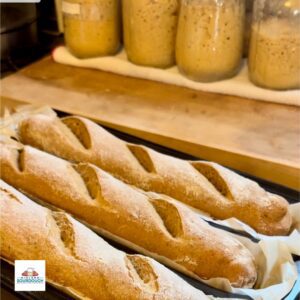
Thanks to its fermentation process, low carb sourdough improves the bioavailability of essential nutrients, such as magnesium, iron, and zinc. These nutrients play a crucial role in supporting your immune system, energy levels, and overall health. When bread is fermented, the phytic acid (which inhibits nutrient absorption) is broken down, making it easier for your body to absorb vitamins and minerals. This means that by switching to low carb bread, you’re not only reducing unnecessary carbs but also improving the quality of your diet. The result is increased vitality and more energy to power through your day without the sluggishness that typically follows traditional bread consumption.
Secret #3: Steady Energy & Fat Burning

One of the key benefits of low carb bread is that it encourages your body to burn stored fat for energy instead of relying on sugar from carbohydrates. Most traditional bread, especially white bread, quickly converts to sugar, causing a rapid spike in blood sugar followed by a crash. This can leave you feeling tired and craving more carbs. In contrast, low carb bread with its high fiber content provides a slower, more consistent release of energy, preventing those spikes and crashes. By reducing your carb intake and focusing on low carb bread with fiber, your body shifts into fat-burning mode, helping you burn fat more efficiently while maintaining a steady flow of energy throughout the day.
Secret #4: Better Satiety & Appetite Control
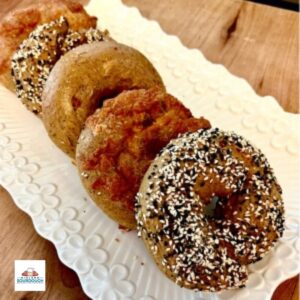
The high fiber content in low carb sourdough, combined with its reduced carb count, helps you feel full for longer periods. Unlike traditional bread, which often leaves you hungry again soon after eating, low carb bread helps curb your appetite naturally. The fiber in low carb sourdough slows down digestion, providing a sense of fullness that lasts longer and reducing the urge to snack. This makes it much easier to control your food intake, helping you avoid overeating or mindless snacking. With less hunger and more control, you’ll find it easier to stick to a healthier eating plan and reach your weight loss goals.
Secret #5: The Metabolic Boost

Low carb bread like Sinless Sourdough contains prebiotics, which nourish your gut microbiome, supporting healthy digestion and metabolism. A healthy gut is essential for managing hunger hormones, improving fat metabolism, and increasing calorie burning. By promoting a balanced gut microbiome, low carb sourdough helps optimize your metabolism, making it easier to burn calories and maintain a healthy weight. This metabolic boost is particularly important for weight loss, as it helps your body process nutrients more efficiently, reducing the risk of weight gain caused by poor digestion or sluggish metabolism.
Secret #6: Anti-Inflammatory Properties

The fermentation process in low carb sourdough helps reduce inflammation, particularly in the gut. Chronic inflammation is often linked to a variety of health issues, including digestive problems, bloating, and even more serious conditions like heart disease and diabetes. By incorporating low carb bread into your diet, you can help reduce systemic inflammation. This, in turn, can improve your digestion, reduce bloating, and even enhance your overall metabolic function. With less inflammation, your body operates more efficiently, making it easier to maintain a healthy weight and support long-term wellness.
Secret #7: Reduced Cravings & Sugar Crashes

Because low carb bread has a low glycemic index, it stabilizes your blood sugar levels and helps to prevent the sharp spikes and crashes that are common with traditional bread. When your blood sugar is stabilized, you’re less likely to experience intense cravings for sweets or carb-heavy snacks throughout the day. With low carb bread, you’ll find that your appetite is more predictable and manageable, allowing you to make healthier food choices and stick to your diet plan. Fewer sugar crashes mean less temptation to overeat or snack mindlessly, helping you stay on track with your weight loss goals.
Secret #8: Psychological Satisfaction of Bread Without the Guilt
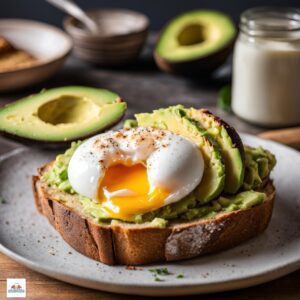
One of the most satisfying aspects of low carb sourdough is the psychological benefit: it allows you to enjoy the comfort of bread without the guilt. Traditional bread often comes with a feeling of deprivation, especially if you’re trying to lose weight or follow a low-carb diet. Low carb bread, on the other hand, lets you indulge in your love of bread while staying aligned with your health and fitness goals. This makes it easier to sustain a healthier eating plan without feeling like you’re missing out on the foods you love. Enjoying low carb sourdough means you can create a positive, guilt-free relationship with food.
Secret #9: Metabolic Flexibility
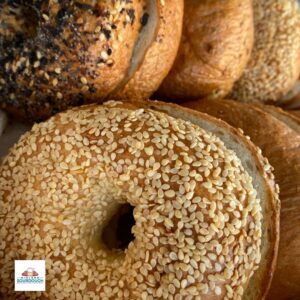
Low carb sourdough helps train your body to switch between burning carbs and fats for energy, a process known as metabolic flexibility. When you consume a diet high in carbohydrates, your body relies more on sugar for energy, making it harder to burn fat. However, when you incorporate low carb bread into your meals, your body learns to efficiently burn fat as an energy source, which is essential for weight loss and fat burning. This metabolic flexibility also helps maintain stable energy levels, as your body can easily tap into both fat and carb stores for energy, reducing energy dips and cravings.
Secret #10: The Organic Acid Advantage
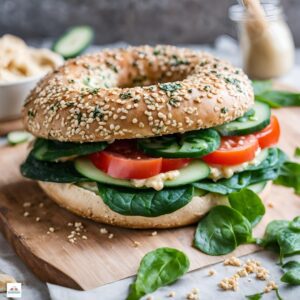
The fermentation process in low carb sourdough produces beneficial organic acids, such as lactic and acetic acids, which offer several health benefits. These organic acids may help regulate blood sugar levels, enhance digestion, and promote feelings of fullness. By stabilizing blood sugar and improving digestion, low carb bread reduces the likelihood of overeating and helps you stay satisfied longer. The acids also have beneficial effects on your gut microbiome, supporting better nutrient absorption and reducing bloating. This makes low carb sourdough not just a healthy bread alternative but a digestive aid that supports your overall well-being.
Secret #11: Digestive Ease

Low carb bread like Sinless Sourdough is much easier to digest than traditional bread, thanks to the fermentation process. During fermentation, gluten proteins are partially broken down, which makes it easier for your body to digest. Additionally, the fermentation process may reduce FODMAPs (a group of short-chain carbohydrates that can cause digestive discomfort), making low carb sourdough a more gut-friendly option. If you’ve ever experienced bloating, gas, or digestive discomfort after eating bread, you’ll find that low carb bread offers a more comfortable and satisfying eating experience.
Secret #12: Low-Carb, High-Fiber: The Perfect Balance
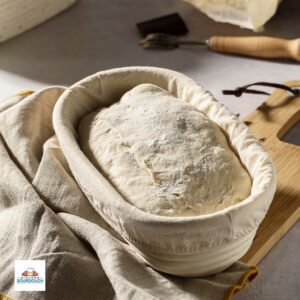
Low carb sourdough offers the perfect balance of low carbs and high fiber. Unlike traditional bread, which is high in refined carbohydrates and often lacks fiber, low carb sourdough provides a filling and satisfying option that won’t spike your blood sugar. The combination of low carbs and high fiber makes low carb bread perfect for low-carb lifestyles and keto diets, while still providing the comforting texture and flavor of traditional bread. This balance helps you stay full, feel satisfied, and reduce your overall carb intake without feeling deprived.
Secret #13: Supports Hormonal Balance for Weight Loss
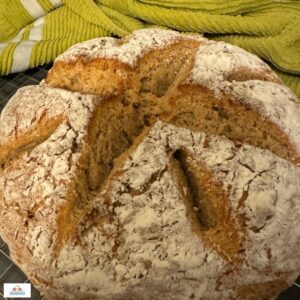
Hormones play a significant role in managing your weight, appetite, and fat storage. Low carb bread, especially Sinless Sourdough, may help regulate key hormones involved in weight management, including insulin, leptin, and ghrelin. Insulin is responsible for controlling blood sugar levels and fat storage. By stabilizing insulin levels through the low glycemic index of low carb bread, you reduce the likelihood of fat storage. Additionally, low carb sourdough helps balance leptin (which signals when you’re full) and ghrelin (which signals hunger), making it easier to control your appetite and avoid overeating. This hormonal balance makes it much easier to lose weight without constant cravings or hunger pangs.
FYI: SOURDOUGH MEDICAL STUDIES AND REVIEWS:
Here they are:
- Does Sourdough Bread Provide Clinically Relevant Health Benefits?: Link: https://pmc.ncbi.nlm.nih.gov/articles/PMC10399781/
- The Sourdough Microbiome : Link: https://asm.org/articles/2020/june/the-sourdough-microbiome
- Sourdough Microbiome Comparison and Benefits: Link: https://pmc.ncbi.nlm.nih.gov/articles/PMC8306212/
- Nutritional Benefits of Sourdough; Systematic Review : Link: https://pubmed.ncbi.nlm.nih.gov/36811591/
- Use of sourdough in low FODMAP baking : Link: https://pubmed.ncbi.nlm.nih.gov/29932101/
Disclaimer:
All information provided on this website regarding the health benefits of sourdough low carb bread is intended for educational purposes only. The content presented is not meant to be taken as specific medical advice for any individual. It should not be considered a replacement for professional medical guidance or treatment. If you have any health concerns, especially related to diabetes, pre-diabetes, or any other medical condition, please consult with a healthcare professional immediately.
🔥 UNLOCK MORE RECIPES STARTER + MEMBERSHIP – Only $99 CAD! 🔥
Get a second starter with your membership – the exclusive membership recipes use 2 different low-carb feedings to bake the 3 different styles of breads and baked goods (weight loss, low-carb lifestyle maintenance, fast and easy discard recipes) that will transform your baking game beyond what your current starter can achieve!
💰 PRICING: Regular Price: $198 CAD Today Only: $99 CAD (Only $99 CAD!)
SINLESSSOURDOUGH.COM
Click the Starter + Membership Box
Your Discounted Membership Includes:
🥖 1849 San Francisco Gold Rush Dehydrated Starter: Scientifically validated starter shipped free to your door!
📦 FREE Shipping: Your starter ships to you at no extra cost
🎥 25+ Instructional Video Trainings: Master Keto & Low-Carb Sourdough Baking with comprehensive video lessons
📚 3 E-Sinless Sourdough Cookbooks: Easy-to-follow sourdough recipes for your low-carb lifestyle
📖 3 E-Keto Low-Carb Cookbooks: Delicious low-carb recipes to complement your baking
🗓️ E-28-Day Keto Kickstarter Journal & Planner: Stay on track with your low-carb journey
📝 Keto Low-Carb E-Cheat Sheets & Quick Guides: Shortcuts for perfect baking every time
🍞 Training for 3 Styles of Keto & Low-Carb Sourdough: Learn recipes for weight loss, lifestyle maintenance, and easy discard recipes
💬 Exclusive Community Access: Share tips, ask questions, and get expert support from fellow bakers
🚀 DON’T MISS OUT – GRAB IT FOR Only $99 CAD NOW! 🚀
Transform Your Baking Today:
- Visit sinlesssourdough.com™
- Click “Starter + Membership”
- Proceed to the purchase page
- Enter code: SINLESS50
- Complete checkout and START BAKING guilt-free sourdough immediately!
SINLESSSOURDOUGH.COM
Click the Starter + Membership Box
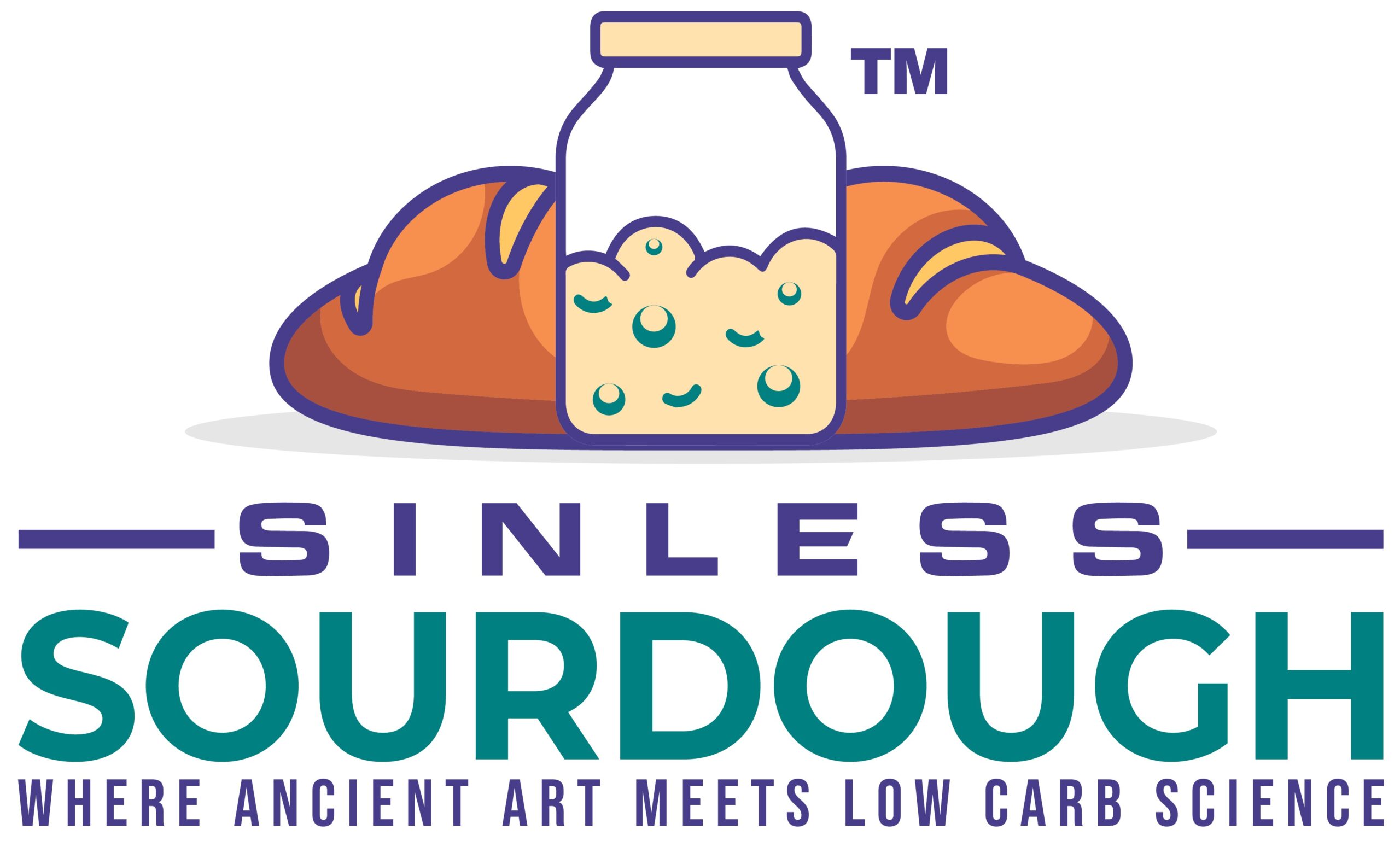




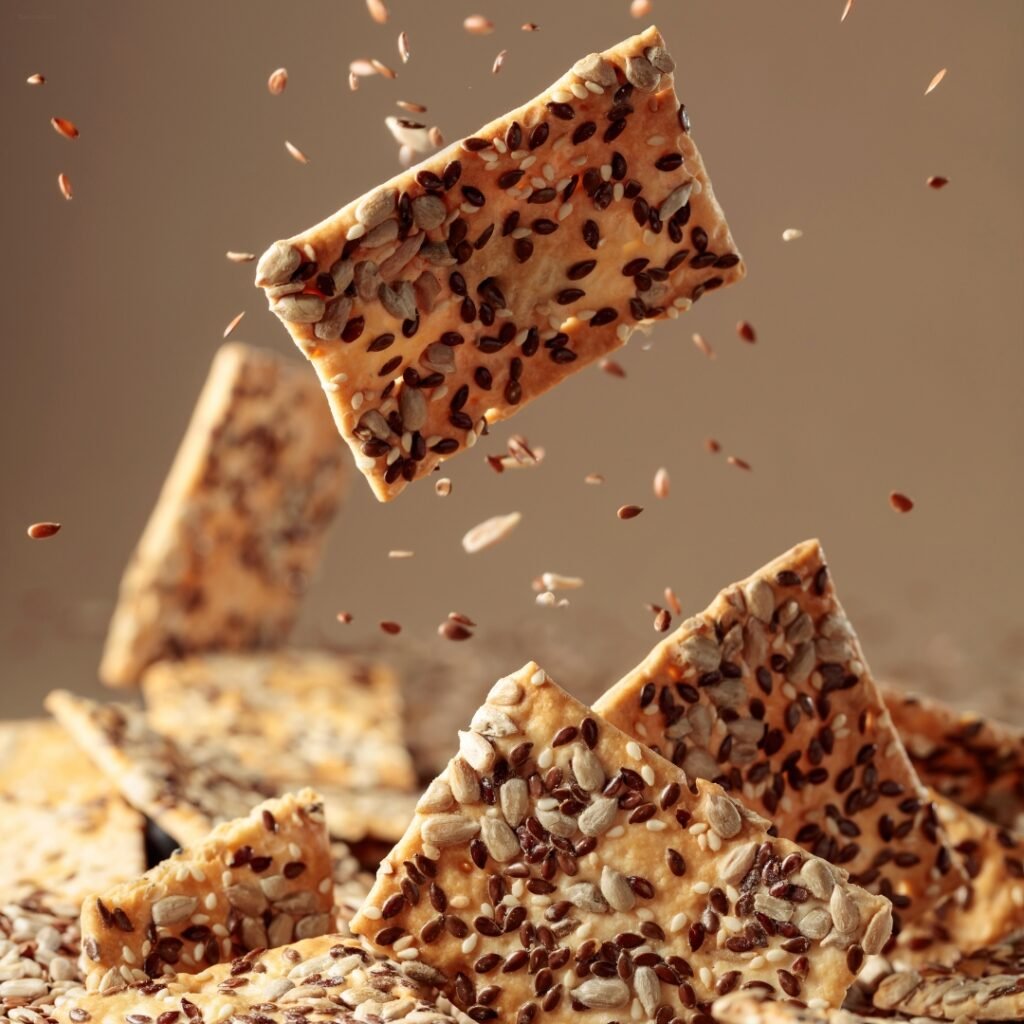
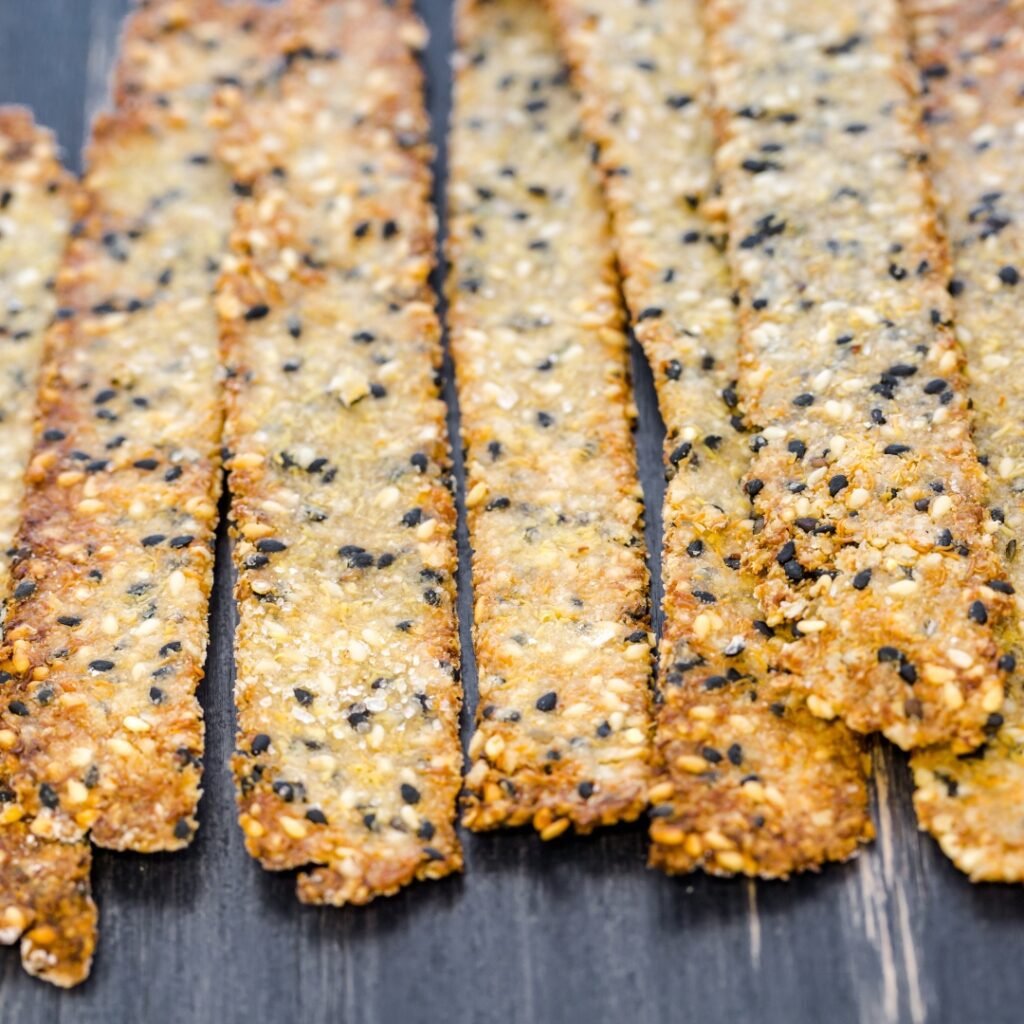
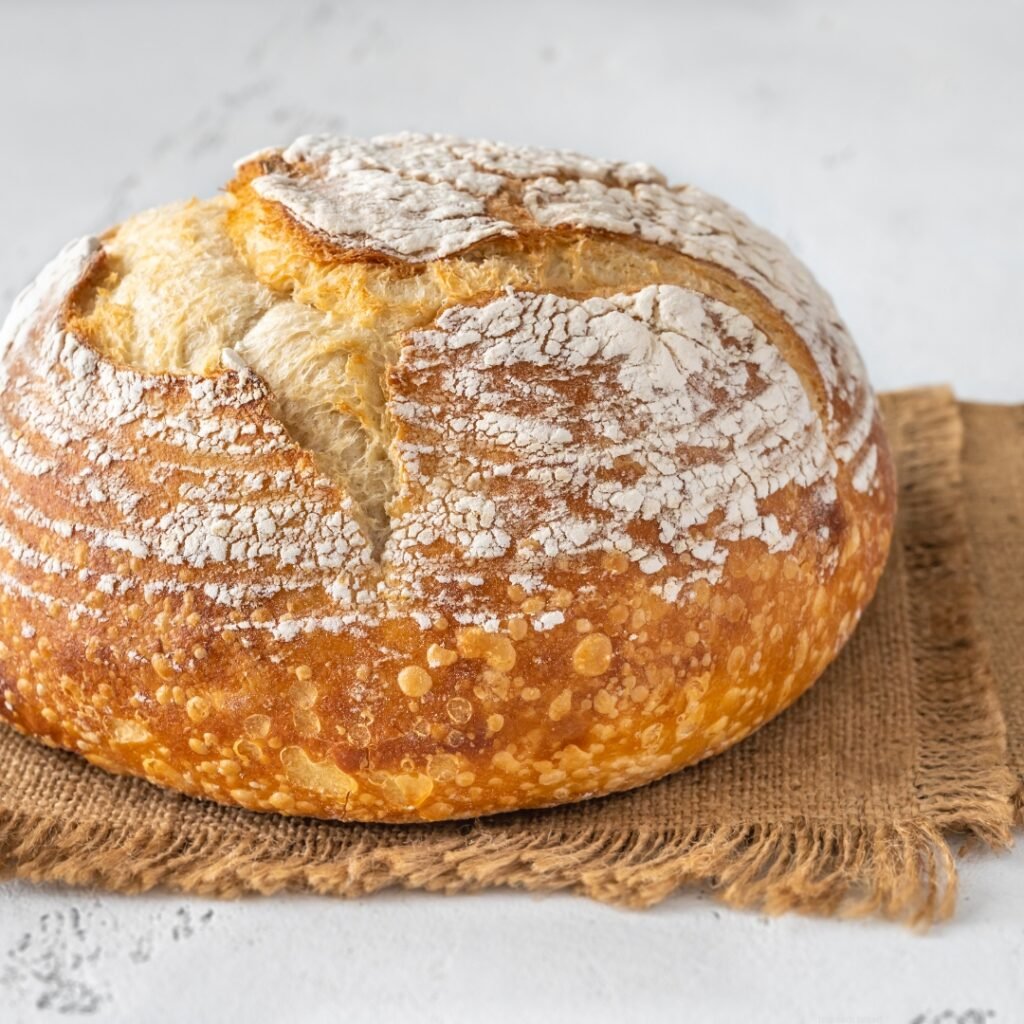
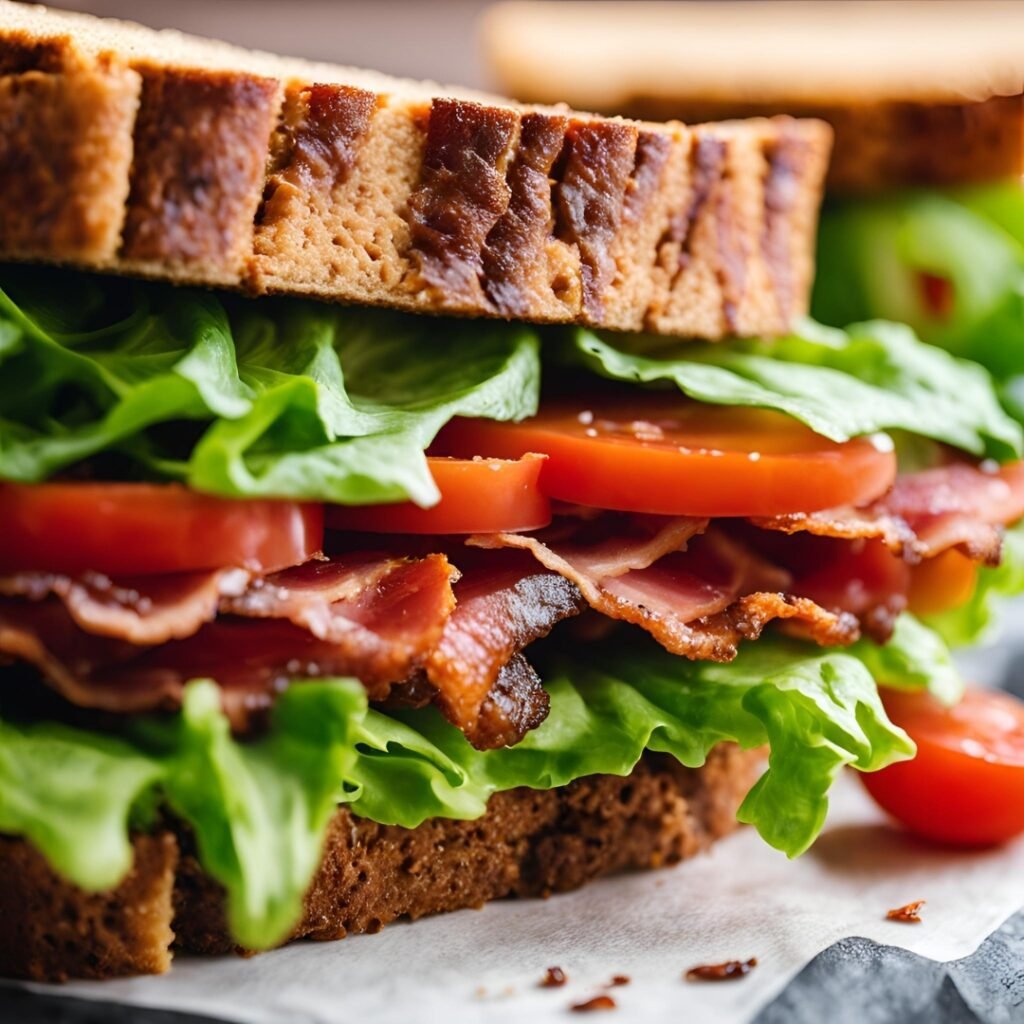
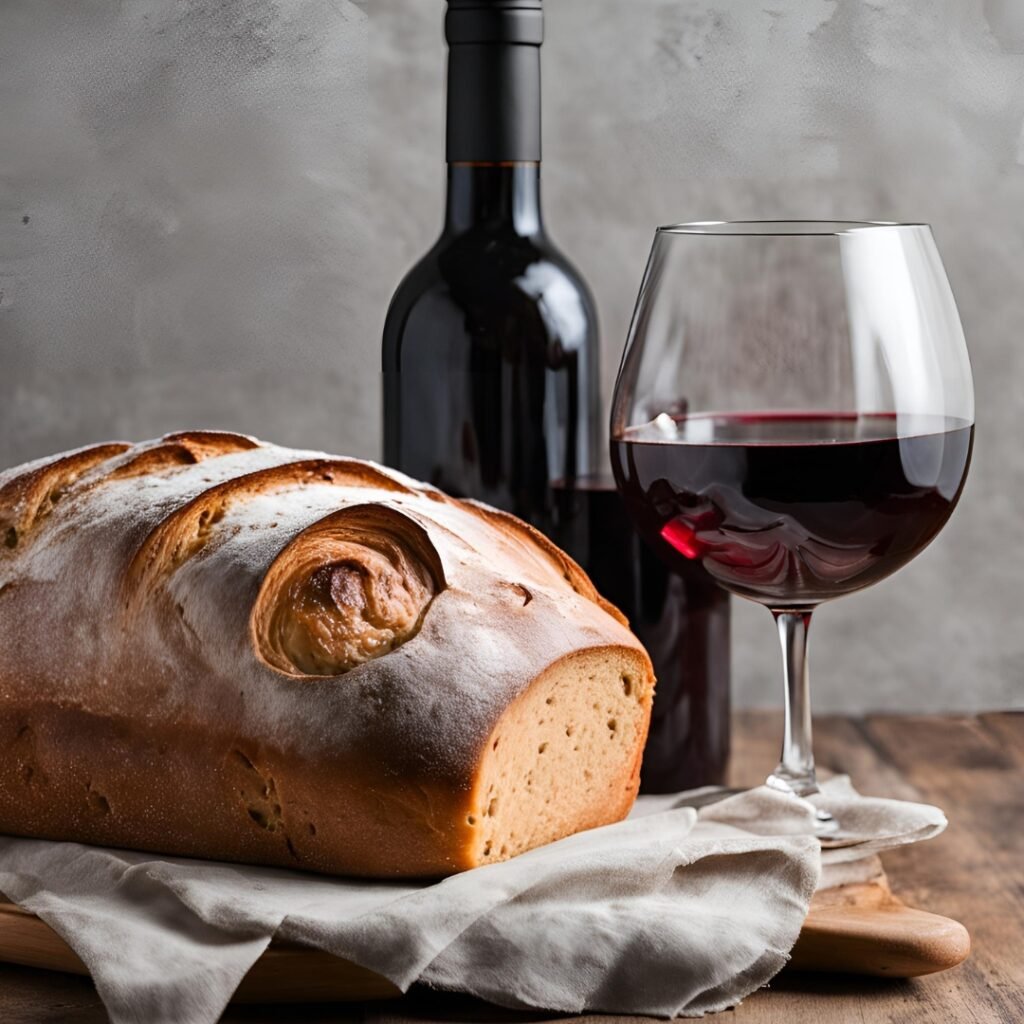
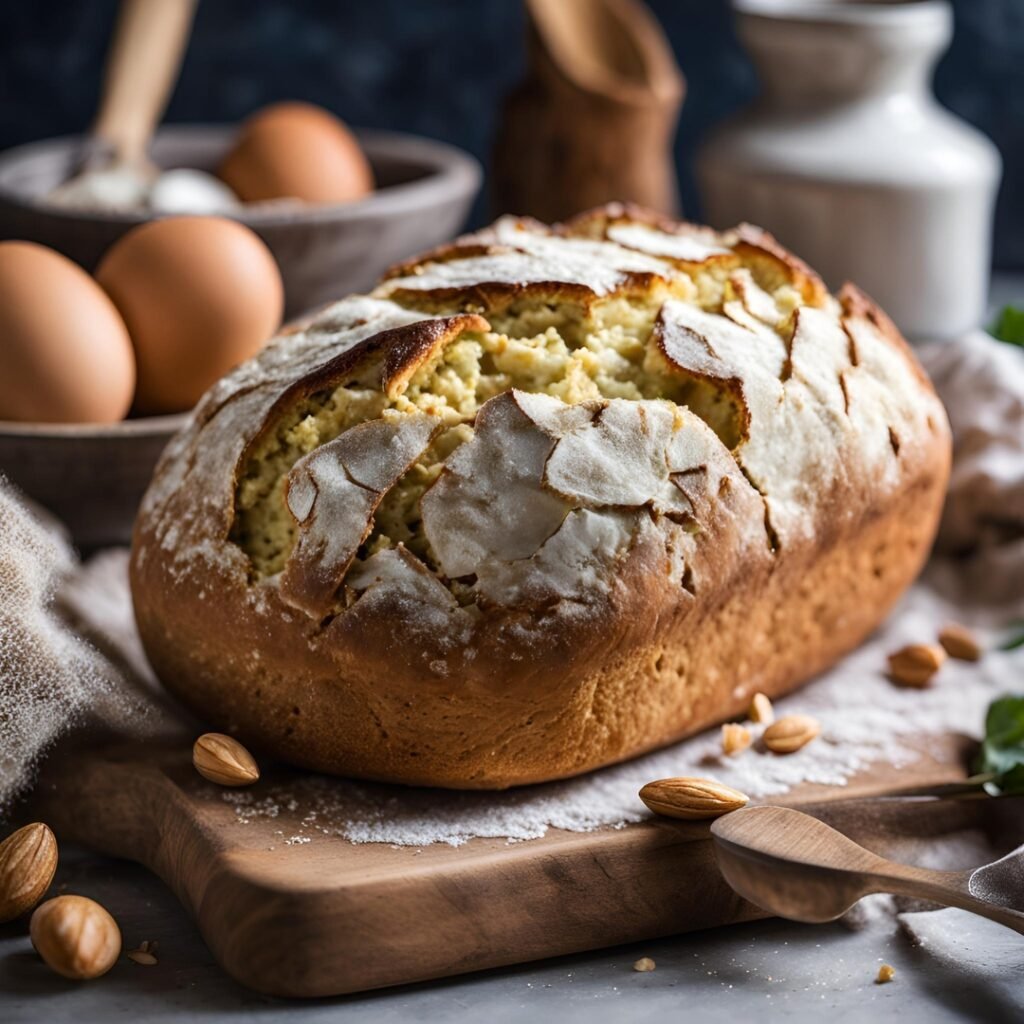
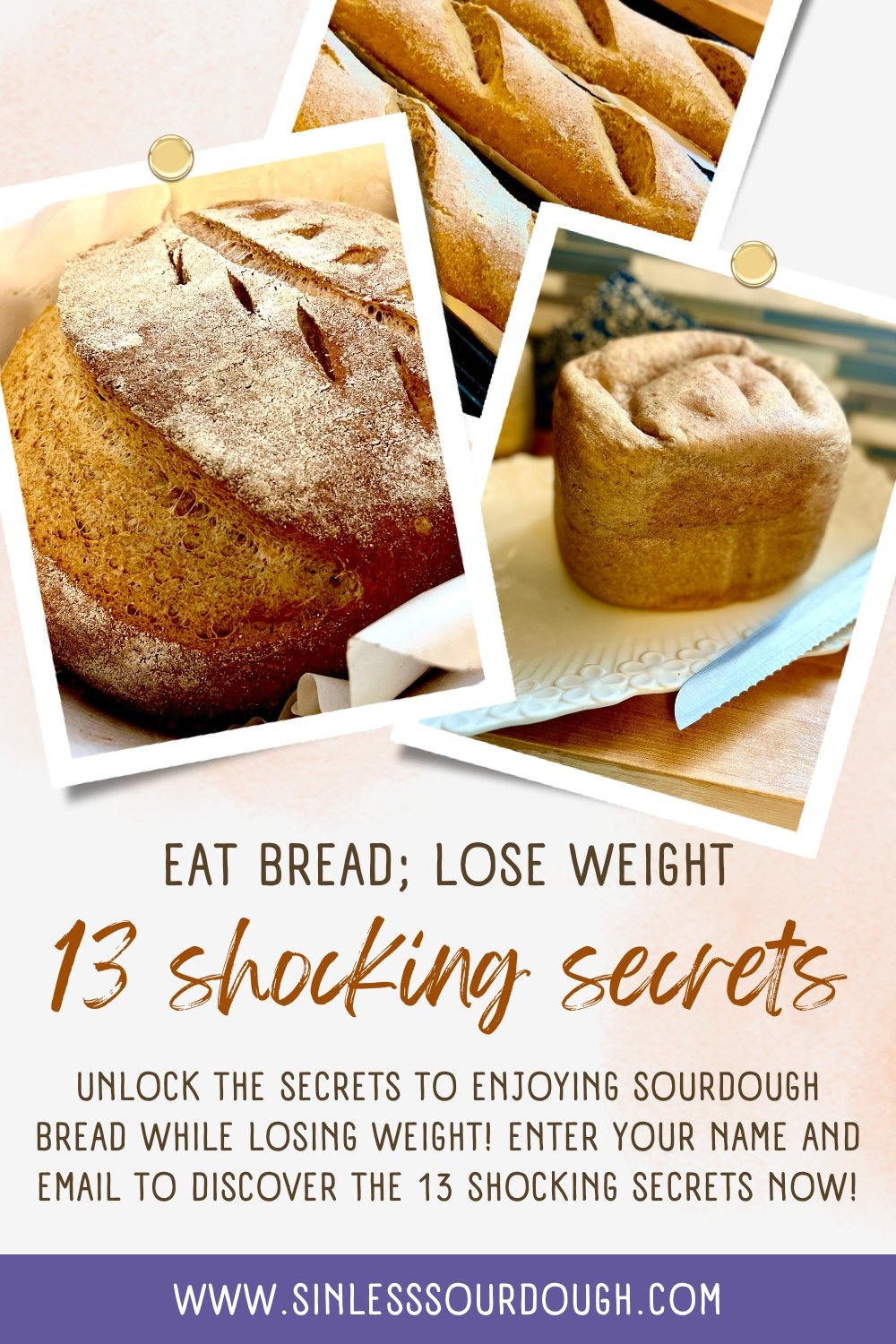
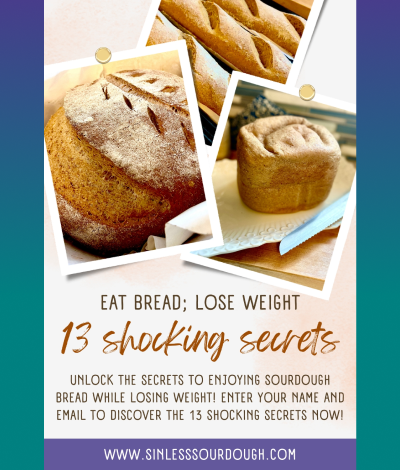
Responses